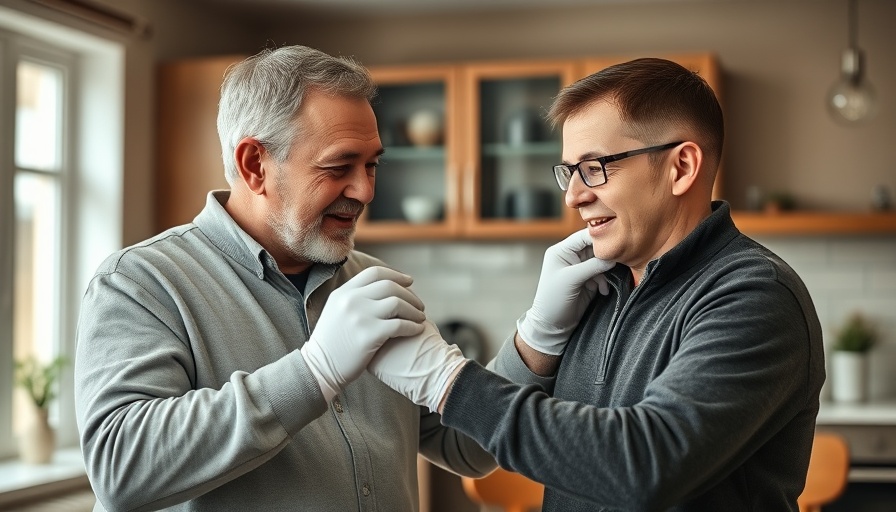
Understanding Phagophobia: A Rare Fear of Swallowing
Phagophobia is an unusual and distressing condition characterized by an intense fear of swallowing liquids, food, or even pills. This fear often stems from the anxiety of choking, leading individuals to avoid necessary intake and potentially suffer from malnutrition. In our daily lives, the simplest act of eating or drinking becomes a daunting task, severely impacting quality of life.
In 'Doctor explains: fear of swallowing?!', the video explores phagophobia, a complex condition that merits deeper examination and understanding.
The Impact of Phagophobia on Health and Nutrition
For those grappling with phagophobia, the implications can be concerning. As the fear of swallowing intensifies, individuals may begin to limit their nutritional intake, which can lead to serious health complications. Malnutrition, dehydration, and weakened immunity can all arise from persistent avoidance of food and liquids. Addressing this issue is not merely a matter of comfort but a crucial step toward ensuring overall health and well-being.
Cognitive Behavioral Therapy: A Path to Recovery
Fortunately, cognitive behavioral therapy (CBT) has shown promise in treating phagophobia. CBT focuses on changing negative thought patterns and behaviors. Through exposure therapy, individuals may gradually confront their fear of swallowing in a safe and controlled environment, gaining confidence over time. Therapy not only aids recovery but can also foster resilience and self-compassion, vital components for long-term mental health.
The Importance of Understanding Mental Health
Phagophobia serves as a reminder of the intricate link between mental health and physical well-being. As we prioritize physical fitness and nutrition, it is equally important to address mental health concerns. By bringing awareness to conditions like phagophobia, we can create an inclusive dialogue that encourages those suffering to seek help and learn coping strategies.
Breaking the Stigma Surrounding Eating Disorders
The fear of swallowing is often overshadowed by more common eating disorders, yet it deserves attention. Many individuals may not even realize they have phagophobia, mistaking it for anxiety about eating or swallowing in general. Educating ourselves about this condition can empower family, friends, and communities to provide support and understanding to those affected.
Supporting Someone with Phagophobia
If you know someone who may suffer from phagophobia, there are ways you can offer support. Encouragement, education, and understanding are crucial in helping them feel less isolated. Engage in conversations about their experiences and encourage them to seek professional guidance. It’s essential for loved ones to show compassion and patience, as recovery can be a gradual journey.
Food Choices Matter: Creating a Soothing Eating Environment
For those with phagophobia, the right food choices can play a vital role. Soft, warm, or pureed foods may be less intimidating than solid items, while thick liquids can be easier to handle than thin ones. Creating a calming atmosphere during mealtimes can also help in reducing anxiety. Bright lighting, soothing music, and stress-reducing techniques can turn eating into a more enjoyable experience.
Seeking Professional Help: Why It’s Important
Engaging with a health professional knowledgeable about phagophobia is essential for effective therapy and recovery strategies. If phagophobia sounds familiar to you or someone you know, consider reaching out to a mental health professional. Early intervention can lead to successful management and recovery.
The Import of Community and Support Groups
Lastly, joining peer support groups can provide invaluable solace for individuals dealing with phagophobia. Connecting with others who share similar experiences fosters a sense of community and normalizes these fears, which can be incredibly comforting. These groups often serve as safe spaces for sharing coping strategies and experiences, turning suffering into strength.
 Add Row
Add Row  Add
Add 




Write A Comment